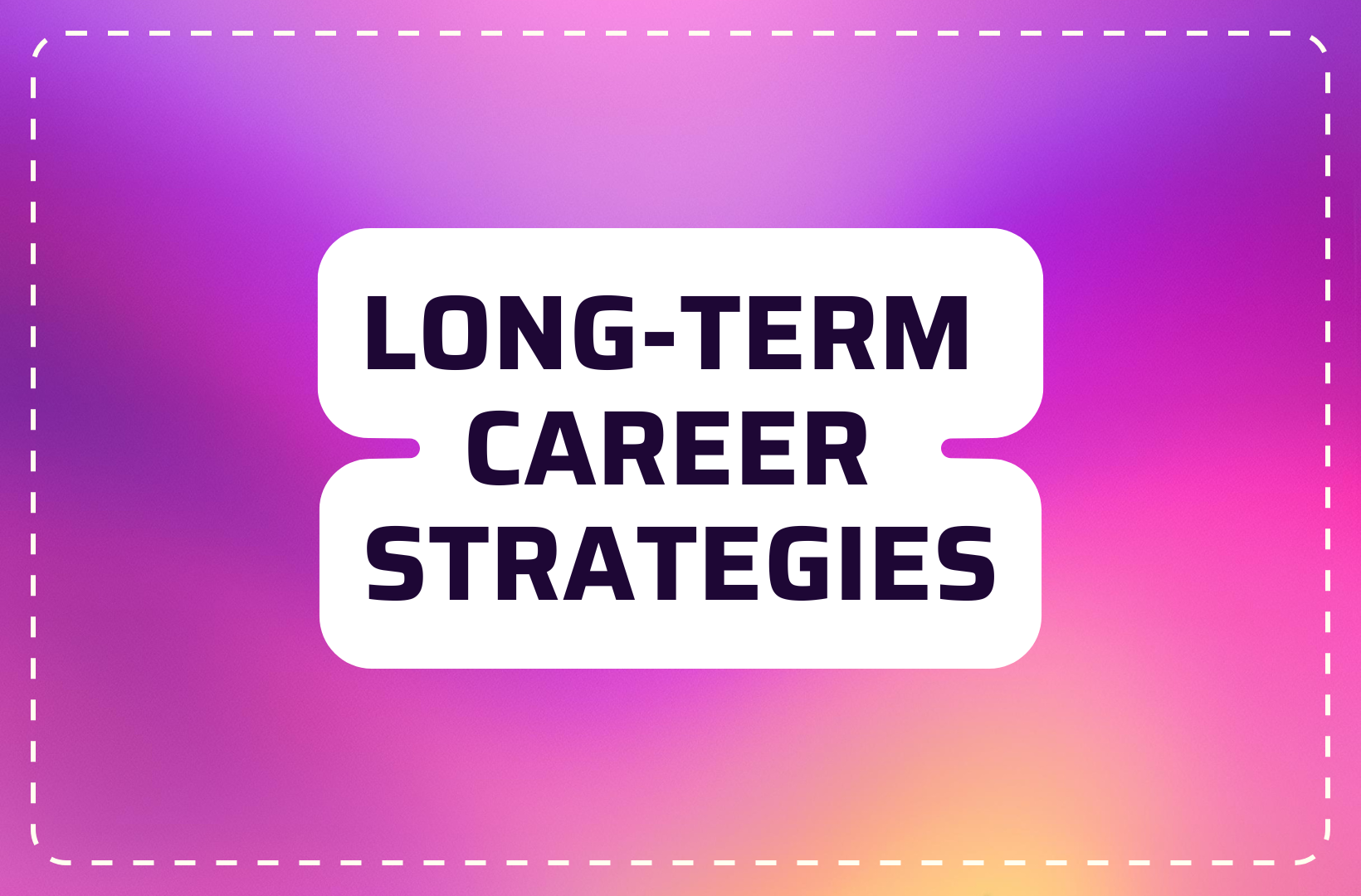Ever notice how building a career in business today feels less like climbing a ladder and more like navigating a moving escalator? Industries shift, roles evolve, and the skills that got someone hired a decade ago no longer guarantee security. Staying competitive requires more than just working hard; it demands planning, adaptability, and the right education. In this blog, we will share how to prepare for a long-term business career that can survive and grow in changing times.
Developing Strategic Adaptability in a Changing Market
While education sets the base, adaptability determines whether a business career can endure the rapid changes seen in today’s economy. Global disruptions—from supply chain breakdowns to technology-driven shifts—regularly redefine how companies operate. Professionals who stay updated on industry trends, regulatory changes, and emerging technologies position themselves to pivot instead of stall when those changes arrive.
Adaptability also means being willing to diversify skill sets. Someone working in marketing today might need to understand data analytics tomorrow. A manager overseeing traditional teams may need to transition to hybrid or fully remote models while maintaining productivity and culture. Proactively building skills for these scenarios keeps a career relevant, while those who resist flexibility often find themselves left behind when roles evolve.

Building the Education and Skills That Last
A durable career starts with education that doesn’t just fill a resume but builds a foundation for versatility. Specialized degrees and ongoing learning open doors and keep those doors from closing as markets transform. Many professionals now turn to online MBA programs through William Paterson University’s Cotsakos College of Business, which is accredited by The Association to Advance Collegiate Schools of Business (AACSB International). These programs, offered 100 percent online, allow students to pursue innovative pathways to leadership roles without pausing their careers.
Through engaging online coursework, students develop essential knowledge and a relevant skill set that can be applied across industries, from corporate operations to entrepreneurial ventures. William Paterson’s range of master’s, undergraduate, and certificate options allows individuals to tailor their education to their goals. Faculty with real-world experience prepare students to meet current challenges while building the skills to adapt as new ones emerge. By combining flexible learning with rigorous, accredited coursework, these programs help professionals stay competitive in an environment where industries demand agility as much as expertise. This kind of preparation keeps careers on track, even as the business landscape continues to shift underfoot.
Building Networks That Actually Work
Connections remain one of the most reliable forms of career insurance, but building them requires more than swapping business cards at occasional events. Effective networking involves cultivating relationships with mentors, peers, and industry professionals who can provide guidance, referrals, and insight during career shifts. Strong networks often lead to new opportunities when industries tighten and offer perspectives that help in making strategic career moves.
Digital platforms make this process easier, but consistent engagement matters as much as connections themselves. Participating in professional associations, joining online forums, and contributing to discussions within specific industry niches help establish credibility and make those connections more valuable. Networking shouldn’t be transactional; it should be treated as a way to build trust and a professional support system over time.
Managing Career Growth Without Burning Out
A long-term career in business cannot be built on constant overwork, even in industries that reward hustle. Burnout continues to rise across sectors, driven by long hours, blurred lines between personal and professional life, and the pressure to stay constantly available. Those who build sustainable careers learn to manage their energy alongside their ambitions.
Setting boundaries while remaining dependable is a critical skill. Delegating effectively, using tools to streamline repetitive tasks, and structuring time to allow recovery all help maintain momentum over decades rather than years. Career growth becomes more attainable when professionals avoid the cycle of overextending and recovering, which derails advancement just as often as a lack of skill or opportunity.
Keeping an Eye on Broader Trends
The business world doesn’t just evolve through technology; it also responds to cultural, social, and regulatory shifts. Understanding these trends helps professionals anticipate changes and position themselves accordingly. Companies now place greater emphasis on sustainability, diversity, and social impact, which means roles increasingly require familiarity with these areas, even outside of traditional corporate responsibility departments.
Staying informed about these larger movements also reveals growth opportunities. Professionals who learn to navigate emerging markets, adapt to shifting consumer behaviors, or leverage sustainability initiatives often carve out roles that didn’t exist a few years earlier. These areas can become career stabilizers, especially as industries seek people who can bridge core business functions with evolving demands.
Why These Approaches Matter Now
Career stability no longer comes from a single employer or static set of skills. It comes from building a combination of education, adaptability, networks, and a mindset that treats growth as ongoing. Economic uncertainty, technological disruption, and evolving expectations mean those who stand still risk falling behind, even if they work hard.
Approaching a career as something to be continually shaped and strengthened allows professionals to move through transitions with less friction. Rather than scrambling to catch up when industries shift, those who prepare remain ahead, shaping their careers rather than reacting to circumstances.
For anyone aiming to build a business career that lasts, the formula is straightforward but demanding: start with a strong educational foundation, stay flexible as roles evolve, invest in genuine relationships, protect your energy, and pay attention to where the world is headed. The result is not just a career that survives but one that grows stronger with time, no matter how unpredictable the market becomes.
FAQ
How can adaptability shape your long-term career in business?
Adaptability enables professionals to navigate market changes and industry shifts efficiently. By diversifying skill sets and staying updated on trends, one can pivot to meet new demands rather than be sidelined. This proactive approach ensures your career remains relevant and resilient, even amid economic uncertainties.
Why is specialized education important for a lasting business career?
Specialized education builds a versatile foundation, equipping professionals to excel across diverse roles and industries. Accredited programs like online MBAs offer flexible pathways for skill enhancement, aligning education with evolving market needs. This keeps you competitive and prepared for emerging opportunities throughout your career.
How does networking contribute to career longevity?
Networking helps cultivate meaningful connections with mentors, peers, and industry leaders who provide guidance and opportunities during career transitions. Active engagement through professional associations and niche forums not only builds credibility but also ensures access to valuable insights during pivotal changes.
What are some strategies to prevent burnout in a business career?
Balancing ambition with energy management is key. Setting boundaries, delegating tasks, and scheduling recovery time help sustain long-term career growth without overextending yourself. A structured approach to work prevents the cycle of burnout, enabling consistent advancement and productivity.
Why should professionals monitor broader business trends?
Economic, social, and technological trends significantly impact career opportunities. By staying informed about areas like sustainability, diversity, and market shifts, professionals can anticipate changes and position themselves in growing sectors, ensuring their careers remain future-proof.
What role does flexibility play in career growth?
Flexibility allows professionals to adapt their roles, skills, and strategies as industries evolve. Whether transitioning to a remote work model or mastering new technologies, being open to change promotes career longevity and relevance in dynamic business environments.
Can online education programs enhance career development?
Absolutely. Online education programs, especially those that are industry-accredited, provide accessible, quality learning tailored to modern challenges. They allow professionals to build expertise without sacrificing their current career momentum, aligning their skills with market demands.
How do sustainable practices influence career stability?
Businesses increasingly focus on sustainability and social responsibility, creating demand for professionals who understand these areas. Integrating sustainability into your skillset can open new career paths and strengthen your position in the evolving corporate landscape.
Why are genuine relationships essential in networking?
Networking is most valuable when built on authenticity and trust, not transactionality. Genuine relationships provide consistent support, insight, and opportunities, acting as a strong career insurance during disruptions or transitions in the industry.
How can professionals shape their careers proactively?
A proactive approach involves combining education, adaptability, networking, and an awareness of market trends. By treating career growth as an ongoing process, professionals stay ahead of changes, shaping their trajectory rather than reacting to circumstances.


